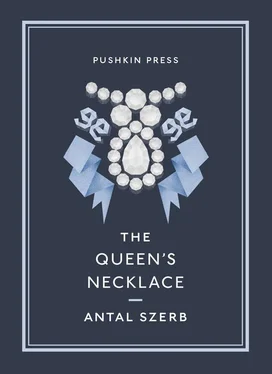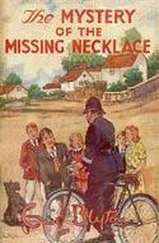The sad thing is that it should be necessary at all to draw attention to Louis’ virtues, as opposed to his shortcomings. Those virtues did almost as much to pave the way for the Revolution as did the sins of his predecessors. As Sainte-Beuve expressed it, rather more elegantly: “Louis XVI’s spiritual virtues ran far beyond what was required for the role of king. It was his very kindness and humanity that drove him unremittingly towards the role of sacrificial victim, and, as he stumbled from one act of weakness to another, the only way in which he would ever attain greatness was through martyrdom.” And so this kind-hearted, saintly king proved to have been of the least possible use to the institution he represented at that precise moment in history. Had he possessed the easy-going, sanguine, rococo spirit of Gustav III of Sweden, he might have come up with some stratagem to protect, or at least prolong, its existence. But at that precise moment only a king with the mind of a Machiavelli could have measured up to the situation. Instead, they had Louis XVI, the humane, indulgent soul who loved his people and shed bitter tears over their fate.
“On that final day,” Sainte-Beuve continues, “Marie-Antoinette poured out her heart, urging him to die like a king, like a true descendant of Louis XIV. But he had resolved rather to die like a Christian, as his forebear St Louis had done.” It was the fate of the French monarchy that this Louis had more in him of his sainted ancestor than of Louis XIV.
THE HEARING LASTED FOR MONTHS. The arrests of d’Oliva and Réteaux changed everything. Once d’Oliva had confessed to her appearance in the Venus Bower, and Réteaux that he had written the letters from ‘the Queen’, Jeanne’s lies collapsed one after another. On 12th April she was brought face to face with Réteaux and d’Oliva and finally compelled to admit to the Venus Bower charade. The confession was torn from her between a thousand screams and convulsions; her superior manner vanished, and she fainted. A warder took her in his arms and carried her back to her cell. But the moment she recovered herself she bit him in the neck, whereupon he simply let her fall.
With the collapse of her scheme to blame everything on Cagliostro, she concocted a fresh one intended to make Rohan the sole villain and herself merely the blind instrument who had had no idea what she was involved in. When that became untenable, she tried another experiment: taking refuge in secrecy—“the sort of secret,” she claimed, that “she could reveal to no one, not even to the head of the royal household in strictest confidence.” And finally, when that too proved ineffectual, she began to feign madness. She smashed everything in her room, and refused to eat or to go down to the hearing. When the warders entered her cell, she would be found lying on the bed stark naked.
Cagliostro however found himself in top form on several occasions during the trial. He castigated Jeanne roundly, making her so angry that she grabbed a candle-holder, pulled it towards her and inflicted a burn on herself. When Réteaux was brought before him, he unleashed a powerful moral lecture — if we can believe him, he “talked until his lungs could no longer bear it”. Réteaux broke down completely, and the judges thanked Cagliostro warmly.
But by the time he had recovered his normal self the strength had gone out of him, and so it seems had the Ram Apis, and even Zobiachel, and, like all the other accused, he suffered something of a collapse. His Italian temperament made him far less able than his French counterparts to withstand the loneliness, and stress, of imprisonment. It seems that he, the great mystic, commanded the fewest sources of inner strength, which rather confirms the bogus nature of his grand spiritual claims. He needed constant supervision, as it was feared that he might kill himself.
Rohan bore his own ordeal with quiet, sombre dignity. When his case came before the Parlement and he ceased to be the prisoner of the King, he lost the right to maintain a great household and receive visitors. Only his doctors were allowed to see him (he was suffering from inflamed kidneys), and it was they who took his letters, written in invisible ink, to his lawyer. He became increasingly exhausted, and began to lose heart. He was deeply anxious about his friends and allies, Planta and Cagliostro. He even required his lawyer to take an oath that he would always address Cagliostro as Comte, as it pained him so much when people did not. But deep in his heart lay the real concern, which troubled him even more strongly than his own fate and that of his friends — his grief for the Queen. “Write and tell me,” he begged his lawyer, “whether it is true that she is still so upset.”
It was customary at the time for lawyers involved in cases of unusual public interest to print and circulate their memoirs, or rather their own accounts of what happened. The first to do this had been Beaumarchais himself. Now the public were waiting in a fever of excitement for ‘memoirs’ of the necklace trial, which of course duly appeared, with huge success. The version put out by Jeanne’s lawyer Doillot saw ten thousand copies instantly snapped up from his home address, and another five thousand distributed through booksellers. This Doillot was an elderly gentleman who had not been in practice very long. Jeanne had completely turned the old fellow’s head. He believed everything she told him, and faithfully recorded her fantastic tales in his memoir. Which of course only served to make it even more of a success.
Cagliostro’s lawyer, the young M Thilorier, was very aware that this was his great chance to make a name for himself. The basic text was written for him, in Italian, by the magus himself, and he then worked it up, with considerable literary flair, to suit the taste of the time. Grimm and other experts declared that had it been a novel, they would have considered it wonderfully interesting and skilfully wrought. In this work can be found the more fanciful stories about Cagliostro’s youth already quoted. As for the actual legal issues, Thilorier was in a very easy situation, as Cagliostro was able to prove his alibi, having arrived in Paris, from some way away, the day after Rohan first talked to the jewellers.
Nicole d’Oliva’s lawyer, the equally youthful Maître Blondel, produced a lyrical little masterpiece, a gem of sensibilité , and the age lapped it up. It tapped the same vein of sentimentality we find in Manon Lescaut and the later La dame aux camélias . People were shocked by Nicole’s innocence, for who could be more innocent than an innocent courtesan?
Blondel’s work ran to twenty thousand copies. Scarcely less popular were the minor personages, Planta, Réteaux, Mme Cagliostro and others who had been more or less incidentally caught up in the case. But the greatest expectations of all were aroused by the memoirs of the Cardinal’s lawyer, Mâitre Target. Target was an Academician, and the pride of the legal profession. Finally, on 16th May, the long-awaited work appeared. It proved a huge disappointment to the public. Target wrote with wonderful scholarly, indeed Ciceronian, eloquence, but he described nothing but the truth, with not a jot of poetry or fantasy in it.
Alongside the memoirs came the flood of pamphlets. Their authors, whose livelihoods depended on the popular hunger for sensation, naturally had no wish to miss out on the boom. Everyone had some new detail to add. They were able to reveal that Rohan and d’Oliva had spent the night together after the scene in the Bower, Rohan in the belief that he held the Queen in his arms. They reported that La Motte was now in Turkey, where he had been circumcised and made a Pasha. The more gruesome and shameless the pamphlet, the more certain it was of success. In this burgeoning tide of filth, Cagliostro became immensely popular. But as for the Queen …
Читать дальше












